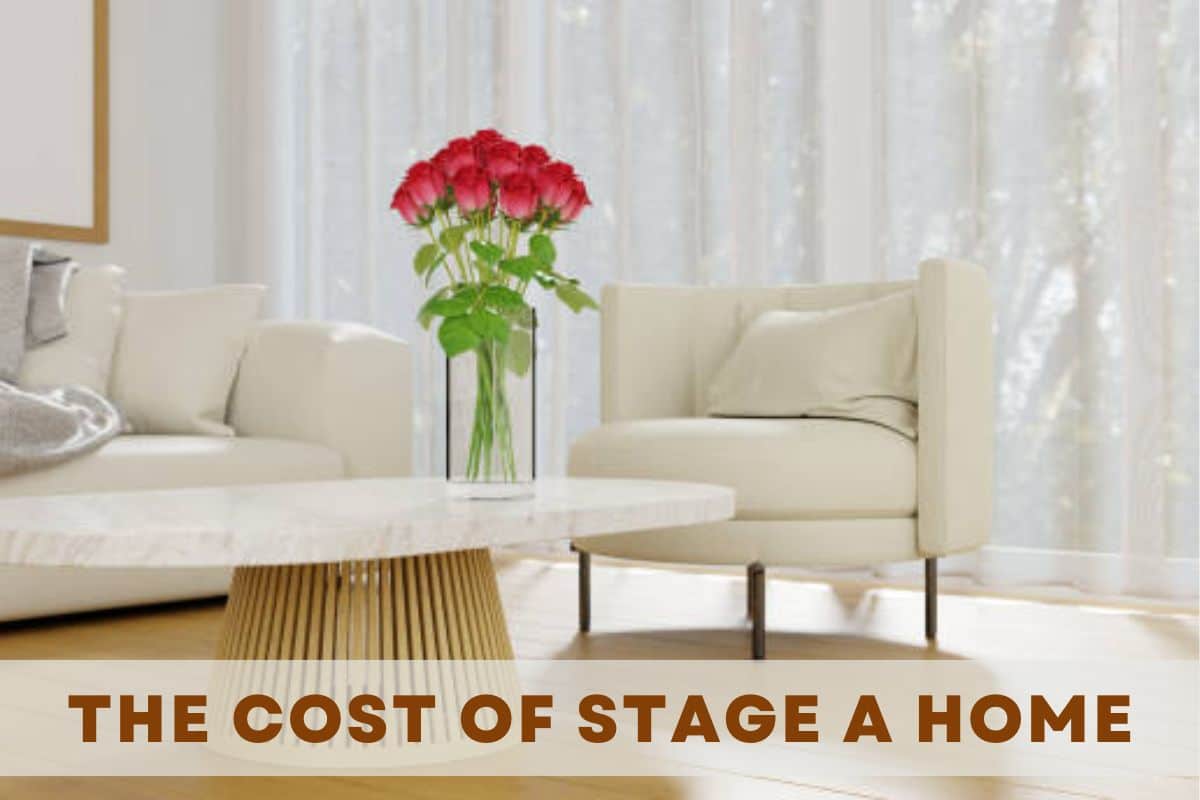Are you looking to increase the value of your home and make it more attractive to potential buyers? Home staging is one way to do this, but how much does it cost?
The response hinges on several elements including your home’s size, the count of rooms requiring staging, the process of locating a real estate agent in your vicinity, the decision to engage a professional for virtual staging, the home stager fee, the use of home staging services, and the choice of employing a professional staging company. In general, most people can expect to spend between $500-$3000 for an average-sized home.
But there are ways to save money when staging a home so that you don’t break the bank while still achieving great results. This article will provide an overview of what goes into calculating the home staging cost, as well as tips on how you can keep costs down.

Understanding the Basics of Home Staging Costs
Home staging is a strategy used by homeowners and realtors to make a property more appealing to potential buyers. The cost can vary significantly depending on factors such as the size of the home, the number of rooms to be staged, and the level of detail required. It’s important to remember that most staged homes sell faster and has higher offers.

Cost of Hiring a Professional Stager
Hiring a professional stager is an option many sellers consider. These professionals have expertise in maximizing a home’s appeal to a broad range of buyers. The cost of their services typically includes a consultation fee, monthly rental fees for furniture and decor, and the labor cost to stage a house. Prices can vary greatly depending on the stager’s experience and the local market.

DIY Staging Costs
For those looking to save money, DIY home staging may be a viable option. This might include decluttering, rearranging furniture, painting walls, and adding decorative elements. While this strategy can be more cost-effective, it’s important to remember that it requires time and effort, and a certain level of design skill to be effective.

Furniture Rental Costs
If your home is empty, or your existing furnishings don’t fit with the desired aesthetic, you may need to rent furniture. The cost will depend on the type and number of pieces you need, as well as the rental duration.
Read More: How to Avoid Foreclosure?

Costs of Minor Repairs and Improvements
Staging isn’t just about furniture and decor – it’s also about showing your home in its best condition. This might involve making minor repairs or improvements, such as fixing leaky faucets, repainting walls, or updating light fixtures. While these costs can add up, they can also significantly increase the perceived value of your home.
Comparing the Cost of Staging vs. Not Staging
When considering the cost of staging, it’s important to weigh it against the potential cost of not staging. Homes that are staged generally sell faster and for more money than those that aren’t. Therefore, while staging involves an upfront cost, it can often more than pay for itself in the final sale price of the home.
Read More: How Fast Can You Get Cash for Your Vacant Land?

Selling to a Cash Home Buyer to Avoid Staging Costs
One of the most effective ways to bypass the costs associated with staging is by selling your home to a cash buyer. Cash home buyers typically purchase properties ‘as-is’, meaning they don’t require any modifications, repairs, or staging efforts. This can save sellers both time and money. However, it’s important to note that cash buyers may offer less than market value for your home, as they factor in the costs of any necessary repairs and renovations they will need to undertake. Therefore, while selling to a cash home buyer can expedite the selling process and eliminate staging costs, it’s crucial to weigh this against potential differences in the sale price. The best we highly recommend is The Eagle Cash Buyers.
Conclusion
In conclusion, the cost of staging a home can vary greatly depending on several factors such as the size of the property, the extent of staging required, and whether you choose to hire a professional stager or attempt a DIY approach. This investment often pays off, as staged homes tend to sell faster and at higher prices. However, it’s important to consider all options, including selling to cash home buyers who buy properties ‘as-is,’ eliminating the need for staging. Ultimately, the decision to stage your home should be based on a careful consideration of your budget, timeline, and the potential return on investment in your specific real estate market.







